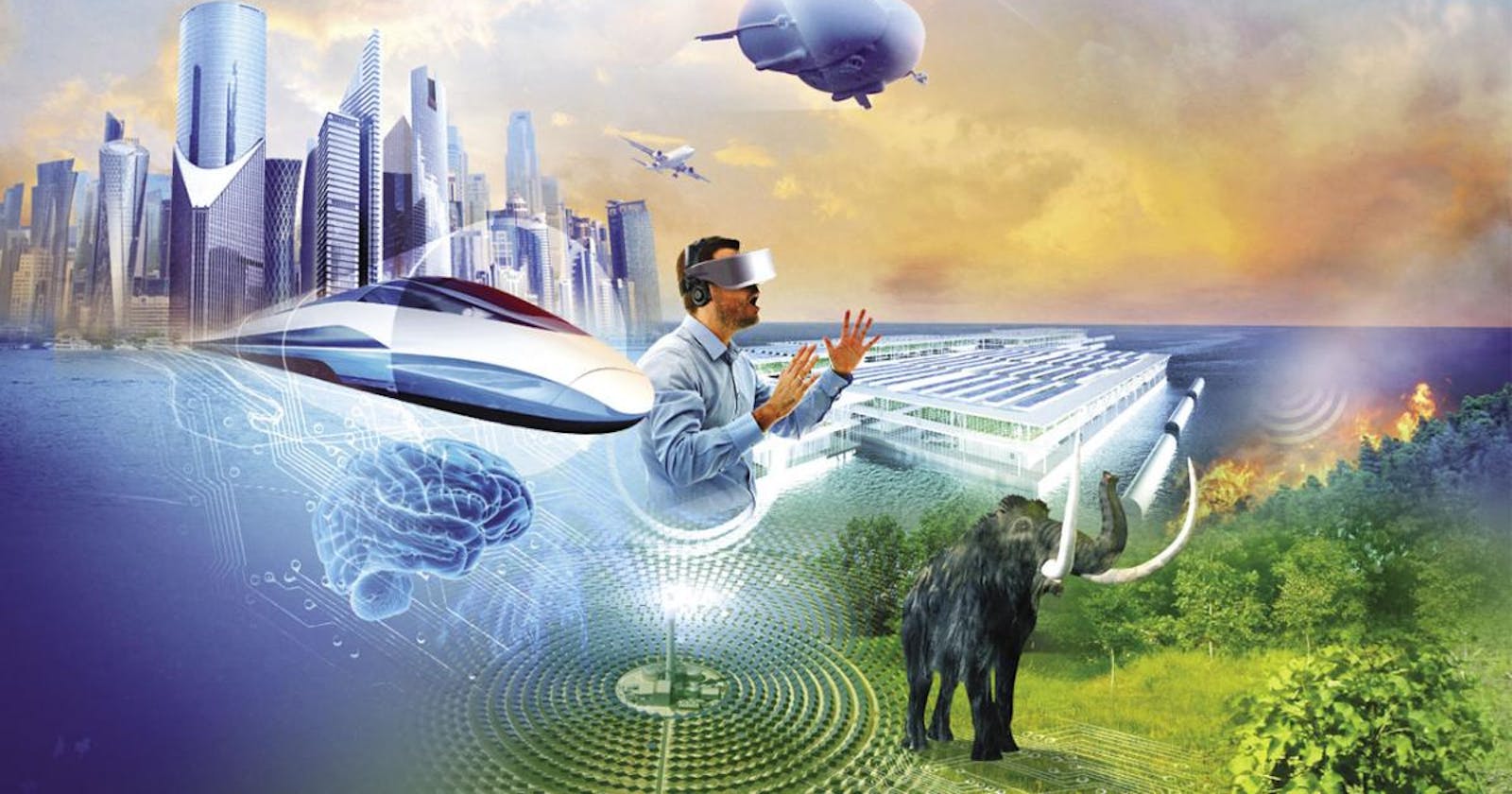Introduction:
As we stand on the cusp of a new era, the future of technology beckons with promises of innovation, transformation, and possibilities beyond imagination. The rapid advancements we've witnessed in recent years are poised to accelerate, ushering in a world that seamlessly blends the physical and digital realms. This article takes a glimpse into the exciting potential of the future of technology.
1. **Artificial Intelligence and Machine Learning**
Artificial Intelligence (AI) and Machine Learning (ML) will continue to be at the forefront of technological evolution. AI systems will become more adept at understanding and interacting with humans, leading to more sophisticated virtual assistants and customer service bots. ML algorithms will enable computers to learn from even smaller datasets, revolutionizing fields such as healthcare, finance, and autonomous vehicles.
2. **5G and Beyond**
The rollout of 5G networks will redefine connectivity. Its ultra-fast speeds and low latency will enable real-time communication and enhance technologies like Internet of Things (IoT), augmented reality (AR), and virtual reality (VR). Beyond 5G, research is already underway for even faster and more efficient communication networks.
3. **Extended Reality (XR)**
Extended Reality, which includes Virtual Reality (VR), Augmented Reality (AR), and Mixed Reality (MR), will transform how we experience the world. AR glasses will overlay digital information onto our physical surroundings, changing how we shop, learn, and interact with the environment. VR will offer immersive experiences beyond gaming, including virtual tourism, remote collaboration, and therapeutic applications.
4. **Quantum Computing**
Quantum computing holds the potential to revolutionize computation as we know it. These supercomputers leverage quantum bits or qubits to perform complex calculations exponentially faster than traditional computers. Quantum computing could drive breakthroughs in cryptography, materials science, and optimization problems that are currently unsolvable.
5. **Biotechnology and HealthTech**
Advancements in biotechnology will lead to personalized medicine, gene editing, and regenerative therapies. HealthTech innovations like wearable health monitors, AI-driven diagnostics, and telemedicine will empower individuals to take charge of their well-being. The convergence of technology and biology could pave the way for unprecedented improvements in human health and longevity.
6. **Sustainable Technologies**
The future will see technology playing a pivotal role in addressing environmental challenges. Clean energy solutions will continue to evolve, with solar, wind, and even emerging technologies like fusion gaining traction. Smart grids and energy-efficient buildings will contribute to a more sustainable future.
7. **Ethics, Privacy, and Regulation**
As technology's reach expands, ethical considerations and privacy concerns will take center stage. Striking a balance between innovation and safeguarding individual rights will be critical. Governments and organizations will need to collaborate to establish appropriate regulations that foster innovation while ensuring responsible use of technology.
Conclusion
The future of technology holds immense promise and potential. From AI-driven transformations to the reimagining of connectivity and realities, the coming years will redefine the way we live, work, and interact. It's crucial for individuals, industries, and governments to collaboratively shape this future, harnessing the power of technology for the betterment of society while addressing challenges and ethical considerations along the way.
